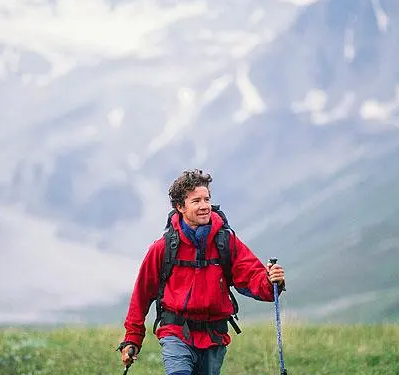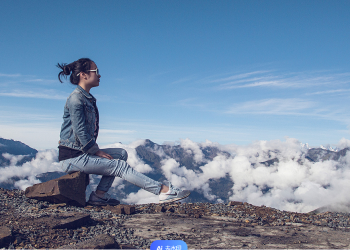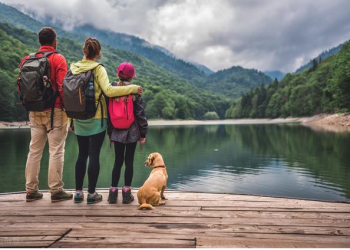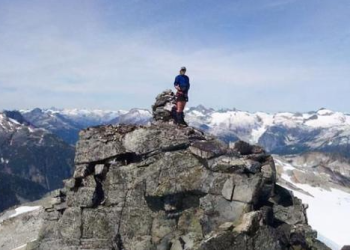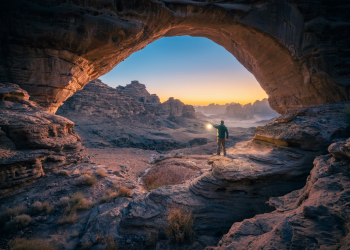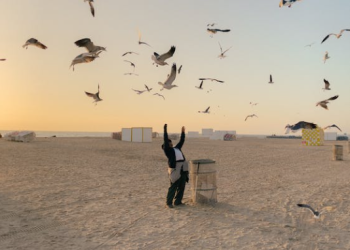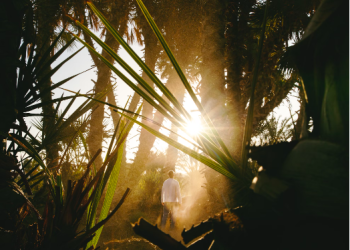Introduction
Solo backpacking, an adventurous pursuit of exploring the world with nothing but a backpack and a spirit of wanderlust, offers a unique opportunity to venture off the beaten path and immerse oneself in the beauty of the unknown. In this essay, we’ll delve into the exhilarating tales and transformative experiences of solo backpacking adventures.
Benefits of Solo Backpacking
Solo backpacking provides unparalleled freedom and flexibility, allowing travelers to chart their own course and follow their instincts wherever they may lead. From majestic mountain trails to secluded beaches, solo backpackers have the freedom to explore remote destinations and hidden gems that may be inaccessible to larger groups. Moreover, solo backpacking offers opportunities for self-discovery, personal growth, and connection with nature and the local culture.
Choosing the Right Destination
Selecting the right destination is crucial for a successful solo backpacking adventure. It’s essential to research destinations that are well-suited for solo travelers in terms of safety, accessibility, and budget. Whether you’re drawn to the rugged landscapes of Patagonia, the lush rainforests of Southeast Asia, or the ancient trails of the Camino de Santiago, there’s a world of adventure waiting to be explored.
Packing Essentials for Solo Backpackers
Packing light and efficiently is essential for solo backpackers. Choosing lightweight and versatile gear, packing essentials for safety and comfort, and minimizing unnecessary items are key strategies for efficient packing. From a sturdy backpack and durable hiking boots to a reliable tent and sleeping bag, packing the right gear can make all the difference in the success of your adventure.
Planning Your Solo Adventure
Effective planning is essential for a memorable solo backpacking adventure. Creating a flexible itinerary that allows for spontaneity and exploration, budgeting for expenses such as accommodation and meals, and preparing for emergencies and unexpected situations are crucial steps in the planning process. By having a clear plan in place, solo backpackers can minimize stress and maximize enjoyment during their journey.
Navigating Challenges on the Trail
Solo backpacking presents its own set of challenges, both physical and mental. From steep mountain passes to long stretches of solitude, solo backpackers must navigate obstacles with determination and resilience. Dealing with loneliness, staying motivated, and overcoming self-doubt are common challenges that solo backpackers may encounter on the trail. However, by embracing these challenges as opportunities for growth and learning, solo backpackers can emerge stronger and more confident in their abilities.
Connecting with Fellow Travelers
Despite the solitude of solo backpacking, there are ample opportunities to connect with fellow travelers along the way. Whether it’s sharing stories around a campfire, joining a group hike, or simply striking up a conversation on the trail, solo backpackers often find camaraderie and friendship in unexpected places. These connections enrich the backpacking experience and create lasting memories that are cherished long after the journey has ended.
Embracing Spontaneity and Adventure
Solo backpacking encourages spontaneity and adventure, allowing travelers to embrace the unexpected and seize opportunities for exploration. Whether it’s taking a detour to explore a hidden waterfall, accepting an invitation to join a local festival, or simply wandering off the beaten path, solo backpackers have the freedom to follow their curiosity and embrace the unknown.
Cultural Immersion and Local Experiences
One of the joys of solo backpacking is the opportunity to immerse oneself in the local culture and experience the world from a different perspective. Whether it’s learning about indigenous traditions, sampling local cuisine, or participating in traditional ceremonies and festivals, solo backpackers gain a deeper understanding of the places they visit and the people who call them home.
Solo Backpacking as a Journey of Self-Discovery
Solo backpacking is not just about exploring the world; it’s also a journey of self-discovery and personal growth. Through the challenges and triumphs of solo travel, backpackers gain confidence, independence, and a greater sense of self-awareness. By stepping out of their comfort zones and embracing the unknown, solo backpackers cultivate resilience and adaptability that serve them well both on and off the trail.
Preserving Nature and Responsible Travel
As stewards of the environment, solo backpackers have a responsibility to minimize their impact on the places they visit and to respect the natural world. By practicing Leave No Trace principles, respecting local customs and traditions, and supporting sustainable tourism initiatives, solo backpackers can help preserve the beauty and integrity of the destinations they love.
Documenting Your Adventures
Documenting your solo backpacking adventures through travel journals, photography, or blogging allows you to capture memories and share your experiences with others. Whether it’s writing about a breathtaking sunrise or sharing tips for fellow travelers, documenting your adventures enables you to relive the magic of your journey and inspire others to embark on their own adventures.
Safety Tips for Solo Backpackers
Safety should always be a top priority for solo backpackers. Prioritizing safety and risk management, trusting your instincts and intuition, and seeking assistance and support when needed are essential strategies for staying safe on the trail. By staying vigilant and aware of your surroundings, solo backpackers can minimize risks and enjoy their adventures with peace of mind.
Conclusion
In conclusion, solo backpacking offers a unique opportunity to explore the world on your own terms and forge unforgettable memories along the way. From the freedom of the open road to the camaraderie of fellow travelers, solo backpacking is a journey of self-discovery, adventure, and connection with the world around us. So pack your bags, lace up your boots, and set out on the road less traveled – your next great adventure awaits!

FAQs After The Conclusion:
- Is solo backpacking safe for beginners? Solo backpacking can be safe for beginners with proper preparation, research, and caution. It’s essential to start with shorter trips to familiarize yourself with the experience and gradually build confidence over time.
- What should I do if I encounter wildlife while backpacking alone? If you encounter wildlife while backpacking alone, remain calm, keep your distance, and avoid sudden movements. Make noise to alert the animal to your presence and slowly back away to a safe distance.
- How can I navigate trails and terrain effectively as a solo backpacker? To navigate trails and terrain effectively, carry detailed maps and a compass or GPS device, familiarize yourself with trail markers and signage, and stay on designated paths whenever possible. It’s also helpful to research the trail in advance and plan your route accordingly.
- What are some essential safety precautions for solo female backpackers? Essential safety precautions for solo female backpackers include researching destinations beforehand, avoiding traveling alone at night, staying in well-lit and populated areas, and trusting your instincts. It’s also important to dress modestly and be aware of cultural norms and customs.
- How can I stay connected with loved ones while backpacking alone in remote areas? To stay connected with loved ones while backpacking alone in remote areas, consider carrying a satellite phone or personal locator beacon for emergencies. You can also check in regularly with friends or family via text message or email when you have access to cell service.
- What should I do if I become lost or disoriented while backpacking alone? If you become lost or disoriented while backpacking alone, stop and stay calm. Use your map and compass or GPS device to retrace your steps or determine your location. If necessary, find a safe location to wait for help or signal for assistance using visual or auditory signals.
- How can I minimize the risk of theft or robbery while backpacking alone? To minimize the risk of theft or robbery while backpacking alone, keep your valuables secure and out of sight, avoid displaying signs of wealth, and be cautious when interacting with strangers. It’s also helpful to stay aware of your surroundings and trust your instincts.
- What should I do if I experience a medical emergency while backpacking alone? If you experience a medical emergency while backpacking alone, assess the situation calmly and determine the severity of the injury or illness. If necessary, call for help using a satellite phone or personal locator beacon, administer first aid to the best of your ability, and seek assistance from nearby hikers or passersby.


